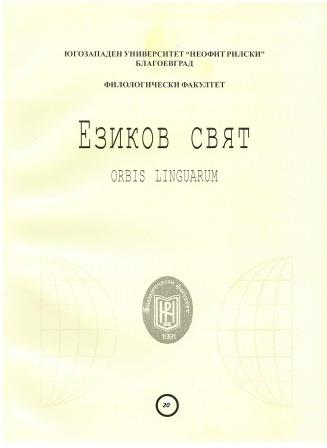A CROSS-LINGUISTIC ANALYSIS OF DECLARATIVE PARENTHETICALS IN ENGLISH AND ALBANIAN
A CROSS-LINGUISTIC ANALYSIS OF DECLARATIVE PARENTHETICALS IN ENGLISH AND ALBANIAN
Author(s): Zana Prekazi, Lindita Sejdiu-RugovaSubject(s): Language and Literature Studies, Theoretical Linguistics, Translation Studies
Published by: ЮГОЗАПАДЕН УНИВЕРСИТЕТ »НЕОФИТ РИЛСКИ«
Keywords: Supplements; Reported Speech; Comment Clauses; Reporting Verbs; Preposing; Translation
Summary/Abstract: This article investigates the structure and function of declarative parentheticals in English and Albanian and identifies the equivalences and correspondences of English parentheticals when translated into Albanian. In terms of categorization, we follow the methodology of Huddleston and Pullum (2002) who consider parentheticals to be part of a special group called “supplements”, distinct both from coordination and subordination. For the comparative study, the method of cross-linguistic analysis was chosen. Using examples of literary and non-literary texts extracted from the Albanian National Corpus, we give arguments why parentheticals are neither preposed complements nor subordinate clauses. As a contribution to the study languages, this article offers an analysis of 30,000 words, which provesthat the grammatical structures of the study languages affect the translation of parentheticals and their position in the clause. Parallel corpus data suggest that Albanian is richer in the ways parentheticals are expressed: as inverted parenthetical, null-subject parenthetical, and parenthetical with pronominal clitic. The default type of parentheticals in Albanian is, unlike English, inverted parenthetical, [verb]+[subject]. Between supplementation and integration, the former is preferred, whereas the most preferred structure to substitute parentheticals with in translation is reported speech.
Journal: Езиков свят - Orbis Linguarum
- Issue Year: 20/2022
- Issue No: 2
- Page Range: 226-234
- Page Count: 9
- Language: English

